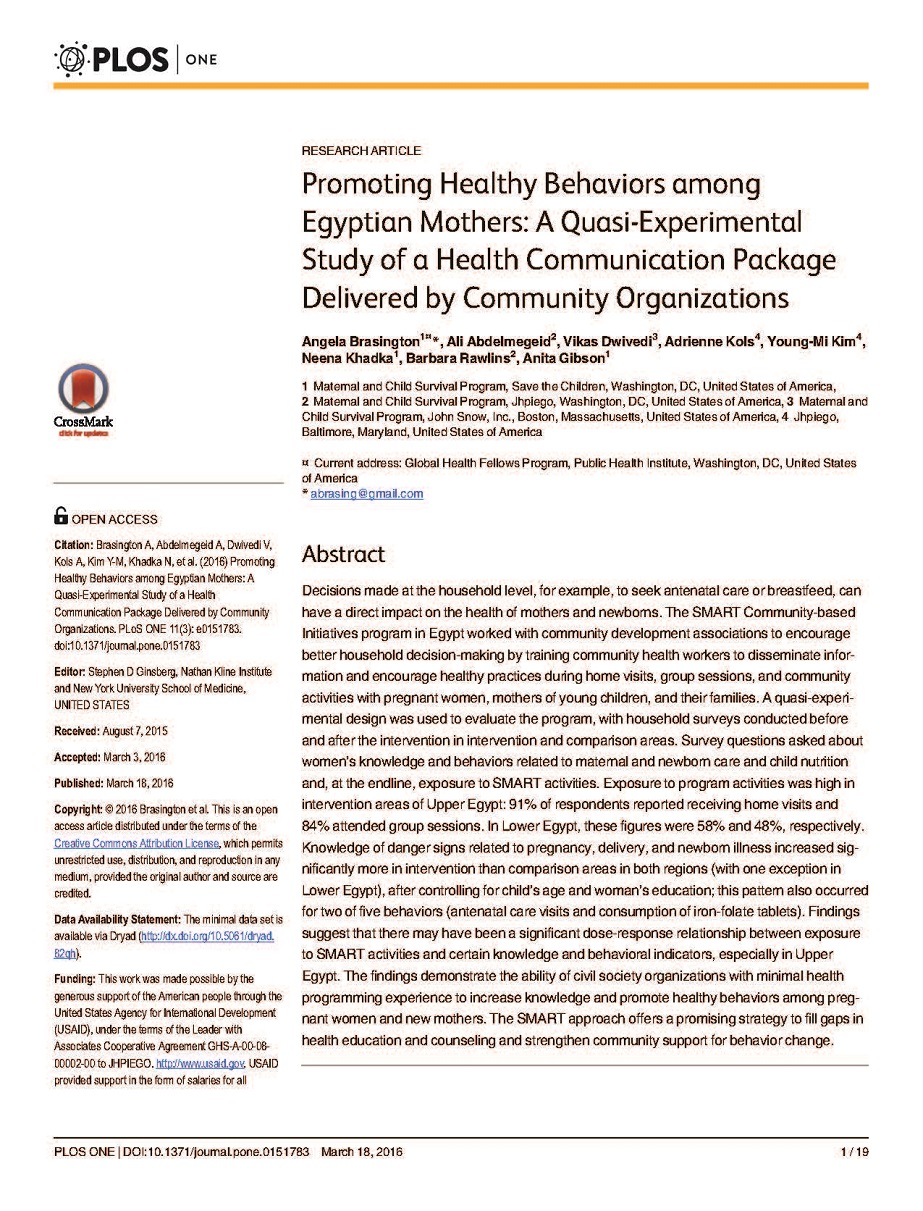Publish Date: March 2016
Author: Angela Brasington, Ali Abdelmegeid, Vikas Dwivedi, Adrienne Kols, Young-Mi Kim, Neena Khadka, Barbara Rawlins, Anita Gibson
This MCSP co-authored article, published in the journal PLOS ONE, examines how decisions made at the household level—to seek antenatal care or breastfeed, for example—can have a direct impact on the health of mothers and newborns. The SMART Community-based Initiatives program in Egypt worked with community development associations to encourage better household decision-making by training community health workers to disseminate information and encourage healthy practices during home visits, group sessions, and community activities with pregnant women, mothers of young children, and their families.
A quasi-experimental design was used to evaluate the program, with household surveys conducted before and after the intervention in intervention and comparison areas. Survey questions asked about women’s knowledge and behaviors related to maternal and newborn care and child nutrition and, at the endline, exposure to SMART activities. Exposure to program activities was high in intervention areas of Upper Egypt: 91% of respondents reported receiving home visits and 84% attended group sessions. In Lower Egypt, these figures were 58% and 48%, respectively. Knowledge of danger signs related to pregnancy, delivery, and newborn illness increased significantly more in intervention than comparison areas in both regions (with one exception in Lower Egypt), after controlling for child’s age and woman’s education; this pattern also occurred for two of five behaviors (antenatal care visits and consumption of iron-folate tablets).
Findings suggest that there may have been a significant dose-response relationship between exposure to SMART activities and certain knowledge and behavioral indicators, especially in Upper Egypt. The findings demonstrate the ability of civil society organizations with minimal health programming experience to increase knowledge and promote healthy behaviors among pregnant women and new mothers. The SMART approach offers a promising strategy to fill gaps in health education and counseling and strengthen community support for behavior change.
Promoting Healthy Behaviors among Egyptian Mothers: A Quasi-Experimental Study of a Health Communication Package Delivered by Community Organizations (1251 downloads )

